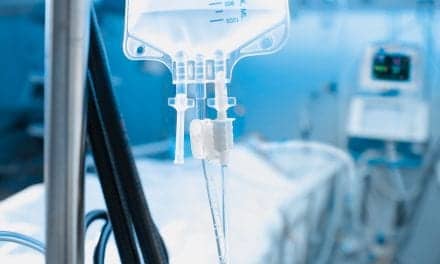High-dose inhaled nitric oxide can benefit patients with respiratory failure due to COVID-19 pneumonia, according to a multicenter international phase 2 clinical trial led by investigators at Massachusetts General Hospital and the University of Alabama in Birmingham.
The study was published in the American Journal of Respiratory and Critical Care Medicine.
Prior clinical trials have shown that low-dose (1–20 parts per million) inhaled nitric oxide boosts blood oxygen levels in critically ill patients with acute lung injury. Low-dose inhaled nitric oxide also improved oxygenation during the severe acute respiratory syndrome (SARS) outbreak of 2003, and recent laboratory experiments showed that nitric oxide inhibits replication of SARS‑CoV‑2.
To test the potential of inhaled nitric oxide gas to treat SARS‑CoV‑2–infected patients who develop lung complications, investigators randomized 193 adults with COVID-19 and respiratory failure who were on ventilators at four hospitals in the United States and one in Sweden to receive high-dose (up to 80 parts per million) nitric oxide for 48 hours or to receive usual care.
Patients who received nitric oxide experienced improved oxygenation and had fewer risks of long-term sensory and motor neurologic symptoms (such as weakness or pain in the extremities) compared with patients receiving usual care.
They also had lower levels of SARS-CoV-2 in their blood and sputum, suggesting that nitric oxide has anti-viral activity. Inhaled nitric oxide was well tolerated and was not linked to any serious adverse events.
Despite these findings, the duration of ventilation and the rates of death at 28 and 90 days did not differ significantly between patients on nitric oxide and those receiving usual care.
“In addition to the well-documented effects on oxygenation, these findings suggest new and promising advantages of utilizing high-concentration inhaled nitric oxide as an antimicrobial agent,” says co–senior author Lorenzo Berra, MD, medical director of respiratory care at Massachusetts General Hospital and the Reginald Jenney associate professor of anesthesia at Harvard Medical School, in a release. “These results highlight the importance of planning future dose-response investigations into the anti-microbial and clinical properties of high-dose inhaled nitric oxide therapy in adults with acute hypoxemic respiratory failure.”
Co-senior author Pankaj Arora, MD, director of the cardiovascular clinical and translational research program and the cardiovascular and genetics clinic program at the University of Alabama in Birmingham Marnix E. Heersink School of Medicine, adds in the release, “The outcomes of this trial will serve as a critical reference for future research, shedding light on specific subgroups like Black and obese individuals, in whom high-dose inhaled nitric oxide may yield more substantial clinical benefits. This is especially relevant given the underlying suppression and relative deficiency of the nitric oxide-cGMP signaling system in these populations.”
The investigator-initiated trial commenced recruitment in March 2020.
Photo 128101873 © Olena Yakobchuk | Dreamstime.com










